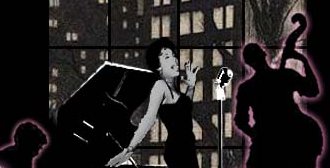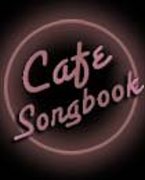Welcome toCafe SongbookInternet Home of the |
 |
 |
| Home || Songs || Songwriters || Performers || Articles and Blogs || Glossary || About Cafe Songbook || Contact/Submit Comment | |
| Search Tips: 1) Click "Find on This Page" button to activate page search box. 2) When searching for a name (e.g. a songwriter), enter last name only. 3) When searching for a song title on the catalog page, omit an initial "The" or "A". 4) more search tips. | |
Ray Evans |
||
|
Basic InformationBorn: Raymond Bernard Evans, February 4, 1915, Salamanca, New York (US) Died: February 15, 2007 (age 92), Los Angeles, California Primary songwriting role: composer and lyricist; also musician and music publisher Co-writers: chiefly Jay Livingston. Also view a database of 9 Ray Evans co-writers. |
|
Overview and Commentary: |
|
Sources: |
Ray Evans' identity as a songwriter is permanently linked to his song writing partner Jay Livingston with whom he wrote for almost all of his career. Although they constituted one of the most successful songwriting team of their era, they were largely unknown to the public. The two met while students at the University of Pennsylvania where after graduation, they worked together, Livingston as a pianist and Evans a clarinetist, for local bands and orchestras. In 1941 they had a songwriting break through with the song "G'bye Now" which they composed for the musical Hellzapoppin (1938), but it wasn't until after the war when they migrated to Hollywood and eventually got hired by Paramount through a recommendation by Johnny Mercer to Buddy De Sylva. As Gary Maromorstein explains, "Their break came when Victor Young, who had scored the still underrated weeper To Each His Own (1946), declined to write a title tune for it. The boys did it without much fuss. It wasn't sung in the picture, but Eddy Howard's recording of it went gold" (Marmorstein, p. 177). It wasn't too long after this that they became the head writers for Paramount, solidifying their careers. During their time at Paramount they wrote half a dozen number one songs as well as three Oscar winners: "Buttons and Bows," Mona Lisa," and "Whatever Will Be Will Be" ("Que Sera Sera"), a mega-hit for Doris Day. Success was also theirs on television during the late fifties when they wrote the themes to, among other shows, Bonanza and Mr. Ed. They returned to Broadway for one venture, the show Oh Captain! which ran for 192 performances in 1958. Generally Livingston wrote the music and Evans the lyrics but their credits more often than not read "Words and Music by Jay Livingston and Ray Evans." |
|
|
| back to top of page | |
Cafe Songbook |
|||
The origins of "Silver Bells,"
|
Although a classic Christmas movie, based on a story by Damon Runyon, The Lemon Drop Kid, produced by Paramount, did not premier until three months after Christmas in March of 1951. Bob Hope plays the title character, a small time gangster, who prevents Moose Moran (Fred Clark), a big time gangster, from winning ten grand at the track. The Kid talks Moran into giving him until Christmas to get him his money back -- instead of killing him immediately. Moran goes for it, and in typical Hopean fashion, the Kid tries scheme after failed scheme to get the money. He finally comes up with a plan for dressing up a bunch of his fellow hoods in Santa suits to collect dough on street corners, ostensibly to help out Nellie Thursday (Jane Darwell) an elderly Broadway "doll" who is down on her luck. Paramount turned to Evans and Livingston to write a Christmas blockbuster for the film, hoping to come up with something as big as Irving Berlin's "White Christmas," which had been written for Bing Crosby to sing in Paramount's 1942 movie Holiday Inn. Hope sings "Silver Bells" in the movie with his co-star Marilyn Maxwell ('Brainey' Baxter), whom Hope has often promised to marry but never actually comes across. A comic version of the lyric performed by Gloomy Willie (William Frawley), one of the faux underworld Santas, opens the scene in which the song is introduced. As Hope and Maxwell pass Willie on the street -- no doubt checking on how their charges are doing -- they quickly realize he will never raise any money with his version in argot -- so they show him how to do it properly.
Silver Bells (the film) was made on the Paramount lot in Hollywood during July and August 1950, but not released until March, 1951. "Silver Bells" the song, recorded by Bing Crosby and Carol Richards was released by Decca Records in October 1950 -- before the movie even premiered. After the Crosby and Richards recording got some attention, the studio recalled Hope and Maxwell to refilm a grander production of the song, the version that can be seen above. One wonders if this apparent attempt on the part of Paramount to capitalize on the song's popularity is what delayed the movie's release thus making it miss the 1950 Christmas season.
Apparently Hope was not pleased that his buddy Crosby upstaged him with his record. If so, he must have been pleased about the practically de rigueur Schtick in Hope movies of taking a dig at Bing, manifesting itself in The Lemon Drop Kid as the naming of a very unpleasant sounding cow "Crosby." In any case, Livingston and Evans were no doubt very pleased by the way things played out because "Silver Bells" has evolved into an undisputed Christmas standard.
|
||
| To access a fuller version of the interview, click here. |
Jay Livingston and Ray Evans discussing the writing of the theme from the TV show, Mr. ED. (excerpt from interview) |
||
| back to top of page | |||
|
|
|||||||||||
| back to top of page | ||||||||||||
Visitor CommentsSubmit comments on songs, songwriters, performers, etc.
Feel free to suggest an addition or correction. Please read our Comments Guidelines before making a submission. (Posting of comments is subject to the guidelines. Not all comments will be posted.) |
| To submit a comment, click here. |
Posted Comments on Ray Evans:
No comments as yet posted |
| back to top of page |
Credits(Ray Evans page) |
Credits for Videomakers of videos used on this page:
Borrowed material (text): The sources of all quoted and paraphrased text are cited. Such content is used under the rules of fair use to further the educational objectives of CafeSongbook.com. CafeSongbook.com makes no claims to rights of any kind in this content or the sources from which it comes.
Borrowed material (images): Images of CD, DVD, book and similar product covers are used courtesy of either Amazon.com
Any other images that appear on CafeSongbook.com pages are either in the public domain or appear through the specific permission of their owners. Such permission will be acknowledged in this space on the page where the image is used.
For further information on Cafe Songbook policies with regard to the above matters, see our "About Cafe Songbook" page (link at top and bottom of every page). |
| Home || Songs || Songwriters || Performers || Articles and Blogs || Glossary || About Cafe Songbook || Contact/Submit Comment | |
© 2009-2018 by CafeSongbook.com -- All Rights Reserved |





